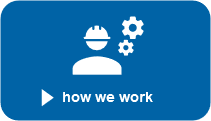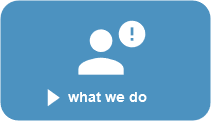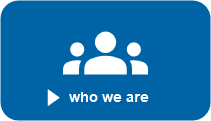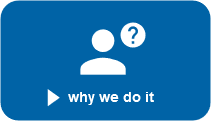What we do
Our main research focus can be broken down to this question:
How can we design environments that facilitate/enable learning, knowledge creation, innovation, and change?
We conceive of learning and change processes as ways of organizing our cognition, resulting in novel knowledge or innovation for a person or an organization. These processes are highly dependent upon the environments we are immersed in, the frameworks that constrain and often facilitate transformation. Knowing organizations as socio-epistemic environments are at the center of our attention: we are shaped by them and they are shaped by us.
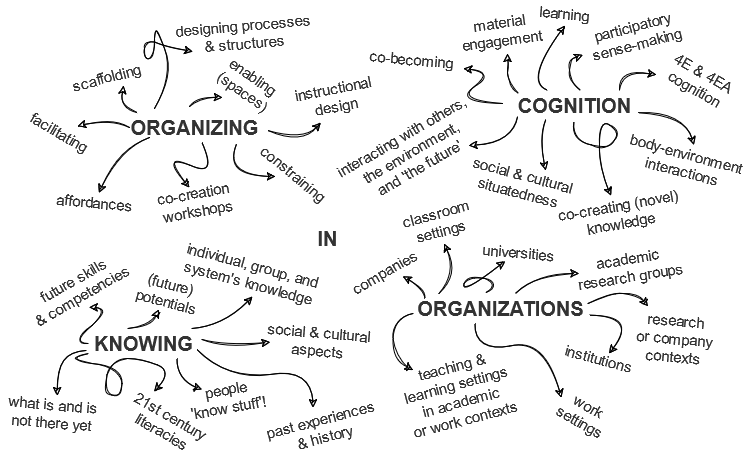
Our research focus is on studying and designing environments that enable and facilitate processes of change, learning, innovation, and transformation (we refer to them as Enabling Spaces). We are doing research on and create environments supporting and integrating processes of knowledge creation and social dynamics. They comprise educational, organizational, work, and research contexts, in which we employ a variety of inter- and trans-disciplinary approaches, methods, and techniques.
The OCKO research gruop is part of the Possibility Studies Network.
Main Topics
- Knowledge (co-)creation in the contexts of (higher) education, work, and interdisciplinary research
- Learning, change, transformation, and innovation in education and company settings
- Instructional design and curriculum development
- 4E (i.e., embodied, embedded, extended, enactive) and 4EA (& affective) cognition
Selected publications
- Peschl, M., Hochenauer, P., Bottaro, G., & Roetzer, K. (2025). How to facilitate presencing as an embodied transformative learning process: The role of embodied practices in future-oriented leadership in innovation teams. International Journal of Presencing Leadership & Coaching, 2(1).
- Bottaro, G., K. Roetzer, A. Schönberg, and M.F. Peschl (2021). Lessons learned from Covid-19: How to design virtual enabling spaces for innovation teams. In J. Fritz and N. Tomaschek (Eds.), Konnektivität: Über die Zusammenarbeit in der virtuellen Welt. University – Society – Industry, pp. 213–230. Münster, New York: Waxmann.
- Peschl, M.F., K. Roetzer, G. Bottaro, and A. Schönberg (2021). Creating novel knowledge by cooperating with each other, the world, and the future. In J. Fritz and N. Tomaschek (Eds.), Konnektivität: Über die Zusammenarbeit in der virtuellen Welt. University – Society – Industry, pp. 157–176. Münster, New York: Waxmann.
- Zenk, L., N. Hynek, S.A. Krawinkler, M.F. Peschl et al. (2021). Supporting innovation processes using material artefacts: Comparing the use of LEGO bricks and moderation cards as boundary objects. Creativity and Innovation Management 2021, 1–15.
- Peschl, M.F. (2020). Theory U: From potentials and co-becoming to bringing forth emergent innovation and shaping a thriving future. On what it means to "learn from the future as it emerges". In O. Gunnlaugson and W. Brendel (Eds.), Advances in Presencing (Vol 2), pp. 65–112. Vancouver: Trifoss Business Press.
- Peschl, M.F. (2019). Design and innovation as co‐creating and co‐becoming with the future. Design Management Journal 14(1), 4–14.
- Peschl, M.F., K. Rötzer, G. Bottaro, and M. Hartner-Tiefenthaler (2019). The role of the shift from I-to-We and Theory-U in overcoming 21st century illiteracies. In O. Gunnlaugson and W. Brendel (Eds.), Advances in Presencing (Vol 1), pp. 161–210. Vancouver: Trifoss Business Press.
- Peschl, M.F. (2019). Unlearning towards an uncertain future: on the back end of future-driven unlearning. The Learning Organization 26(5), 454–469.
- Hartner-Tiefenthaler, M., K. Rötzer, G. Bottaro, and M.F. Peschl (2018). When relational and epistemological uncertainty act as driving forces in collaborative knowledge creation processes among university students. Thinking Skills and Creativity 28(June 2018), 21–40.
- Peschl, M.F., G. Bottaro, M Hartner-Tiefenthaler, and K. Rötzer (2014). Learning how to innovate as a socio-epistemological process of co-creation. Towards a constructivist teaching strategy for innovation. Constructivist Foundations 9(3), 421–433.
- Zimmermann, E., M.F. Peschl, and B. Römmer-Nossek (2010). Constructivist curriculum design for the interdisciplinary study programme MEi:CogSci. A case study. Constructivist Foundations 5(3), 144–157.
Current and past projects (selection)
- A framework for organizational improvisation. BRIDGE project (FFG) (with Danube University Krems & Roland Gareis Consulting (RGC) & Beratergruppe Neuwaldegg (BGN)) | 8/2019 – 9/2022
- Innovation Lens – Technology and methods for identification and analysis for innovation blind spots, COIN Project (FFG), Innovation Network (Salzburg Research, Swarovsky, Implicity, Semantic Lab) | 11/2014–2/2017
- Man4Gen: Manual Operation of 4th Generation Airliners. 7th Framework EU Project (with I.Stepnicka) [Stichting Nationaal Lucht- en Ruimtevaartlaboratorium, Deutsches Zentrum für Luft- und Raumfahrt, International Development of Technology, Linköpings Universitet, Boeing Research & Technology Europe, University of Vienna Wien, Medizinische Universität Wien, Global Training Aviation, Airbus, Boeing, Embraer, SA] | 10/2012–9/2015
- Innovation as Socio-Epistemological Process of Knowledge Creation: Long-term research on university courses in the field of philosophy of science, innovation, and knowledge creation; mixed-methods research, action research, grounded theory; (cooperation of University of Vienna and Vienna University of Technology until 2019) | ongoing since 2013
- Uncertainty and its role in and for knowledge creation processes
- Group dynamics and the shift 'from I to We'
- Innovation in online teaching/learning spaces (in the context of COVID-19)
- Online versus offline settings
- KIRAS: Modellbildungs- und simulationsgestützte Entscheidungsunterstützung in der Last-Mile Katastrophenbewältigung (FFG) (lead BOKU Wien) | 11/2013–1/2016
- Event Network Advancement (ENA). BRIDGE project (FFG) with Danube University Krems | 3/2012–2/2015


